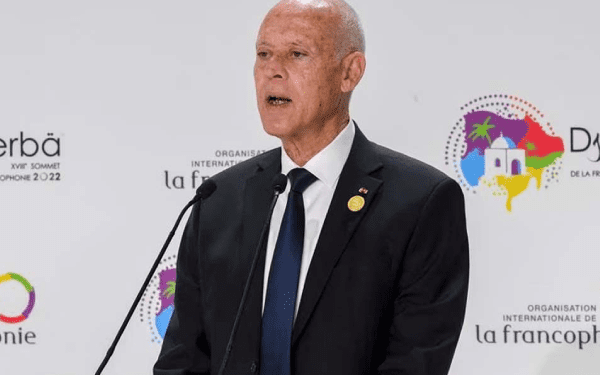
In a dramatic move that has sent shockwaves through global financial markets, Tunisia has officially cut ties with the International Monetary Fund (IMF) following months of growing tensions over economic policies and demands for austerity measures. The decision, announced by the Tunisian government earlier this week, marks a significant shift in the country’s economic strategy and comes amid a severe financial crisis that has plagued the nation for several years.
Tunisia, which has faced persistent economic challenges since the 2011 revolution that ousted its longtime dictator, has been struggling with high inflation, unemployment, and mounting public debt. For the past several years, the country has relied on financial support from international institutions like the IMF to stabilize its economy, but disagreements over the terms of assistance have led to a breakdown in relations.
The Tunisian government, led by President Kais Saied, has long criticized the IMF for its insistence on implementing austerity measures, such as cutting subsidies, raising taxes, and reducing public sector wages. These measures, according to critics, have placed an undue burden on the country’s most vulnerable populations, exacerbating poverty and social unrest.
In a statement issued on Thursday, Tunisia’s Finance Minister announced that the government had made the decision to sever ties with the IMF, citing the institution’s failure to understand the specific needs and challenges facing the country. We cannot continue down a path that harms our people, the minister said, adding that the country would now focus on finding alternative sources of financial support.
The announcement has been met with mixed reactions both within Tunisia and internationally. On one hand, many Tunisians, particularly those in the lower-income brackets, have expressed relief, seeing this as a victory against policies they believe have deepened inequality. Labor unions and political activists have long rallied against IMF-backed austerity measures, which they argue have contributed to soaring prices and eroded living standards.
On the other hand, experts warn that Tunisia’s decision could have serious economic consequences. The IMF has been a crucial source of funding for the country, with loans and financial assistance helping Tunisia manage its large fiscal deficit and stabilize its currency. Without the IMF’s support, Tunisia could face more difficulties in securing funding from other international lenders, and its access to global capital markets may become more limited.
The severing of ties also raises concerns about Tunisia’s ability to implement the necessary reforms to revive its ailing economy. While the government has promised to pursue an alternative economic strategy, it remains unclear how it plans to address the country’s deep structural issues without external assistance.
Tunisia’s economic crisis has been further exacerbated by the ongoing fallout from the COVID-19 pandemic, which has hit the country’s key sectors, such as tourism and agriculture, hard. The country’s public debt has reached unsustainable levels, and inflation has spiked, causing widespread hardship for ordinary citizens. The decision to cut ties with the IMF comes at a time when many countries in the region are struggling with similar economic challenges, and the global financial landscape remains uncertain.
Political analysts suggest that President Saied’s decision is part of a broader effort to assert Tunisia’s independence from external influences and regain control over its economic policies. However, critics of the president’s administration fear that this move could further isolate the country and lead to deeper economic instability. The government’s handling of the crisis will likely become a defining issue for Saied’s leadership as Tunisia moves forward.
In the international community, the IMF’s response to Tunisia’s announcement has been cautious, with the organization expressing concern over the country’s economic trajectory but leaving the door open for future cooperation. We remain committed to supporting Tunisia in its efforts to overcome its economic challenges, said an IMF spokesperson, adding that the door would remain open for dialogue if the government decides to re-engage.
As Tunisia navigates this uncertain economic landscape, all eyes will be on its ability to secure alternative financial support and implement reforms that can restore growth and stability. The coming months will be critical in determining whether Tunisia’s break with the IMF will lead to a new era of economic self-determination or further exacerbate the financial struggles that have defined much of the country’s recent history.

